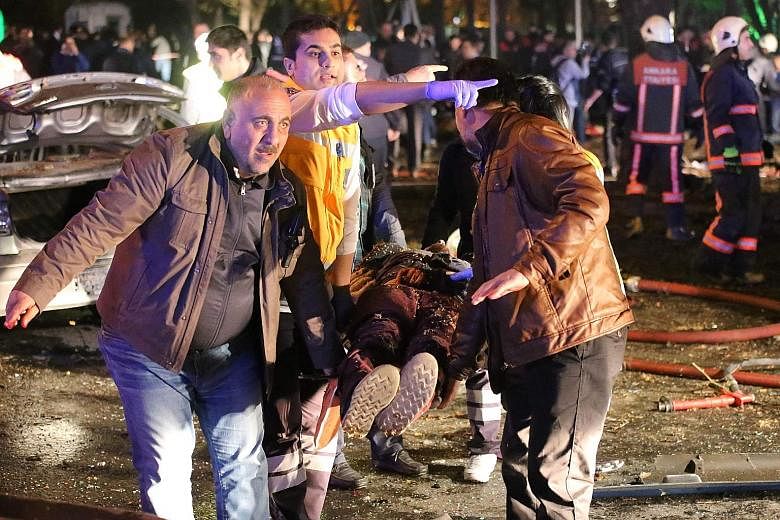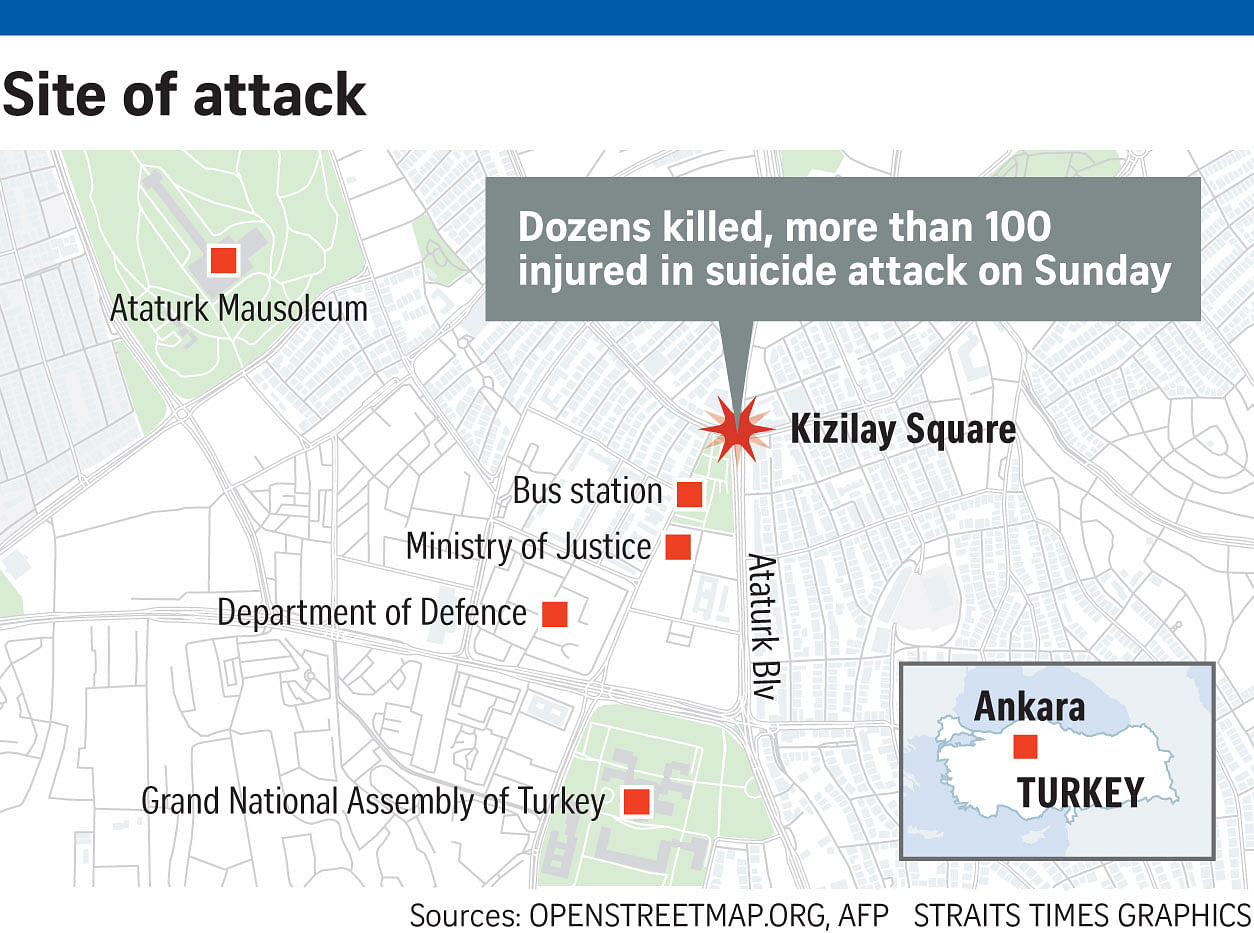ANKARA • Australia's Ambassador to Turkey narrowly survived Sunday's blast in central Ankara, with his car 20m away from the explosion.
Foreign Minister Julie Bishop said Ambassador James Larsen was shaken by the blast but uninjured. "He likened it to a bomb going off in the middle of one of Sydney's busiest streets... it was a horrific sight," said Ms Bishop.
"It really does bring it home to us that a terrorist attack can take place at any time, anywhere," she told Nine Network television. "It was an appalling thing for him to witness, being so close, but he's fine," she added of the ambassador.
But the father of footballer Umut Bulut, who plays for Galatasaray football club and the Turkish national team, was killed in the attack.
The Istanbul-based club, which plays in the top division of the Turkish football league, confirmed on its website that Mr Kemal Bulut was among the victims.
Eyewitness Dogan Asik, who was injured in the attack, told Britain's The Independent: "There were about 40 people (in the bus targeted by the car bomb).
"It slowed down. A car went by us, and 'boom', it exploded."
One man caught up in the bombing said he escaped death by flinging himself out of his car. "It exploded, there was a red flame that came out," he said, adding that the force of the blast pushed his car backwards.
"I threw myself out and then I can't remember anything else."
Photographs of the blast area on Sunday showed several buses and vehicles on fire, as well as shattered glass from nearby shop windows.
"It looks and sounds larger than the attack last month," said Mr Mehmet Arabaci, an Ankara resident who took photos of the scene after hearing the explosion. He was referring to a similar attack in the city, just a few blocks away, on Feb 17.
That attack targeted a military bus as it waited at traffic lights, and killed 29 people, mostly soldiers.
Sunday's attack has raised questions over the Turkish government's ability to protect its citizens, and occurred just days after the United States Embassy warned of a potential terrorist plot to attack government buildings and residences in Ankara.
Mr Nihat Gorgulu, an uncle of one of the victims, lashed out at the authorities for failing to prevent Sunday's carnage.
"People have been talking about another bomb attack coming for more than a week but the government took no precautions and didn't warn anyone," he said. "We are very afraid because the government doesn't care about the people of this country."
The Turkish authorities, as they had after other attacks, imposed a ban on local news media coverage of the bombing. A short while later, a court in Ankara issued an order blocking access to social media, in an effort to prevent the dissemination of photos from the bombing scene.
Mr Arabaci said Ankara residents had been avoiding crowded areas after two previous major attacks in the city, which occurred within the past six months.
"We don't know when and where there will be another attack, but it's apparent now that they can't be prevented, and everyone is on edge," he said.
REUTERS, AGENCE FRANCE- PRESSE, NEW YORK TIMES


